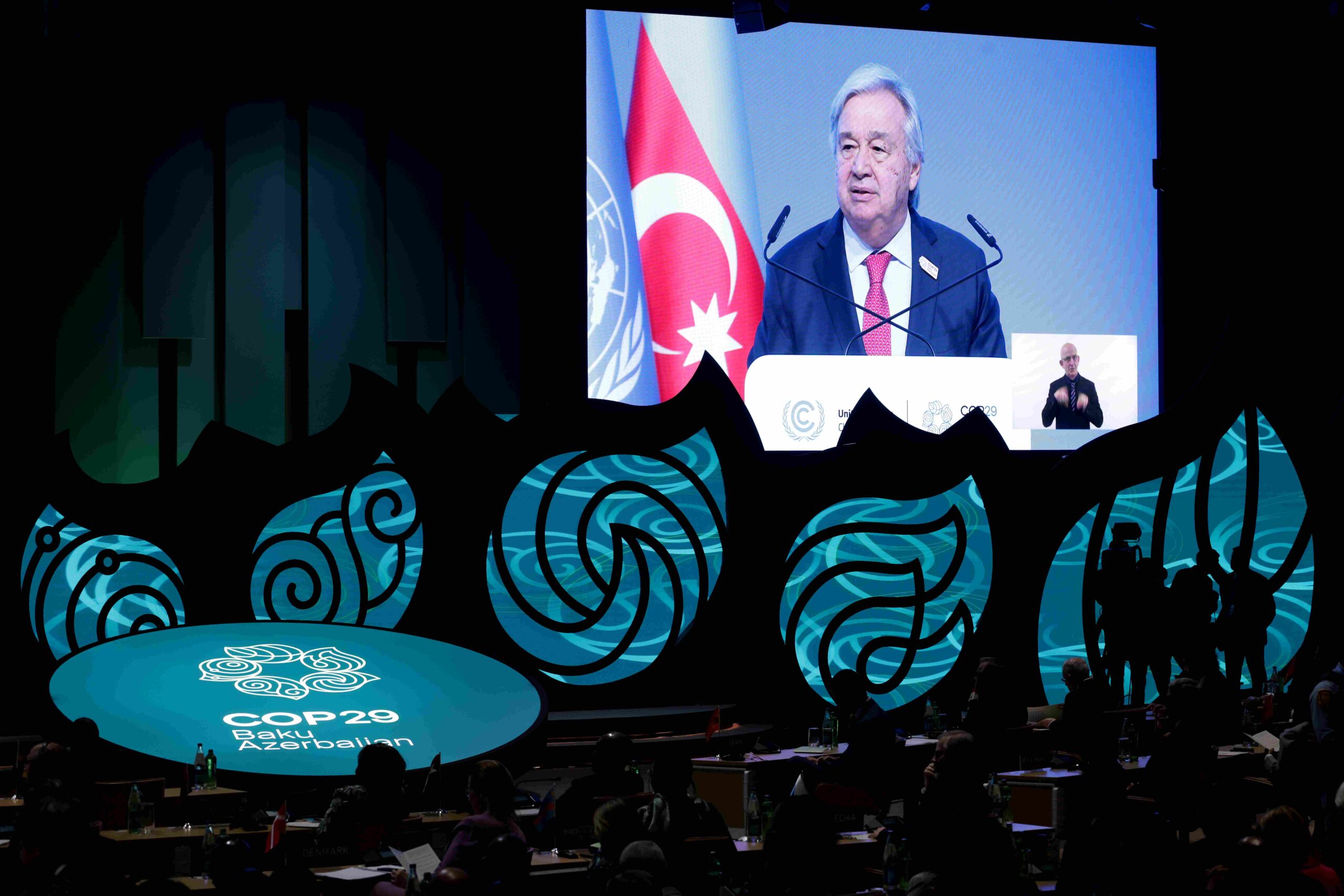Copyright newstatesman

Ahead of this year’s Cop, the UN secretary-general António Guterres delivered the stark admission that humanity has failed to keep global heating within 1.5°C. Missing a headline target set ten years ago at Cop21 invited fresh questions about whether the institution is genuinely capable of driving meaningful progress. Indeed, 30 years on from its inception, the conference’s size is becoming unwieldy. What began as a forum for world leaders, scientists and diplomats has tilted steadily towards the interests of lobbyists. The summit floor is now crowded with representatives of oil, agribusiness, banking and mining, each presenting themselves as indispensable to tackling the crisis their industries helped create. With each passing iteration, the moniker “Green Davos” feels that bit more apt. Speaking to Spotlight, Francesco Grillo, director of the think tank Vision, captured the prevailing mood: “It is a circus, a huge expensive circus, happening in a different country every year with very little results.“[This year’s] Cop president talks a lot about moving from designing the climate agenda to implementing it, about making business more central to that agenda. That’s understandable. But the real priority, I think, should be to reform the global governance of climate action.” To what extent should that reform begin with Cop itself? Grillo pointed to the travel and money tied up in the conference. He noted that in this year’s host city of Belém, Brazil, hotel rooms that typically cost $30 now start at $300 a night – a useful reminder of how much corporate capital continues to flow into the event. Engagement of private enterprise is a fundamental aspect of tackling climate change. But, with so many of the same firms paying that bed and board resisting the policies needed to prevent catastrophic climate breakdown, many wonder whether their influence has become outsized. On the eve of this year’s summit, analysis by InfluenceMap and Transparency International of 466 companies that attended the last two Cops found that 88 per cent had failed to voice clear support for the Paris Agreement since 2024. Some 65 per cent had shown no policy engagement on the issue whatsoever. It’s understandable people question motives. A key pillar of Climate Plunder: How a Powerful Few Are Locking the World into Disaster, a report published in late October by Oxfam, was the call to ban fossil fuel corporations from climate negotiations. At Cop29 last year, it reveals, 1,773 coal, oil and gas lobbyists were granted badges, more than the ten most climate-vulnerable nations combined. Indeed, the chief executive of the Azerbaijani delegation was even recorded negotiating fossil fuel deals while supposedly carrying out official duties. Despite these clear failures, Nafkote Dabi, climate change policy lead at Oxfam International, leans towards reform rather than replacement, insisting that, despite past failures, the institution still matters. “This is the only place available for countries, for communities, to come together and discuss these issues,” she told Spotlight. “What we find to be a huge problem time and again is the power dynamics. The inequality we see reflected in the world on a daily basis also gets reflected within the Cop space. We really need to keep on fighting for Cop.”If Cop is to remain the primary, impactful stage for climate diplomacy, the question is whether lower-profile voices can use that platform to be heard. Amid the lobbying power and broken promises, it is heartening to see less wealthy nations, often those most exposed to climate disaster, asserting themselves more forcefully. A joint declaration at this year’s Brics summit in Rio de Janeiro, calling for greater financial support from the West to mitigate climate risks, could signal a growing confidence – or loss of patience – from the Global South. For Andreas Sieber, associate director of policy and campaigns at 350.org, it cannot come soon enough. Cop will function best, he believes, when smaller countries feel emboldened to push the agenda. “Historically, the most meaningful progress has come when the unlikely heroes, the small island states, were able to pull some strings. I’m hopeful the Cop30 process can enable the same kind of action again,” he said. The United Nations G77, which encompasses the Global South, accounts for 18 per cent of global GDP, and is expected to grow at twice the speed of advanced economies through to 2029. As a cohesive coalition, it is not without weight. Cohesion is also a challenge, however – and lobbyists can still wield unwelcome influence in eroding trust and legitimacy. Climate Plunder noted that two thirds of delegates nominated by the island nation Palau at Cop28 were representatives of Amazon, HSBC and the pro-business group, World Green Economy Organisation. Cop also faces the challenge of maintaining authority at a time of wide distrust in government, institutions and traditional diplomacy. The legitimacy of monolithic governance structures – and the liberal international order more widely – continues to erode. Cop, along with other UN and Bretton Woods institutions, has long been criticised as being slow to adapt. Such criticisms feel all the sharper in the current political climate. Grillo agreed. “The reform of the UN Security Council started the day after the council was established, so this is not new. But now, the crisis of multilateralism is much deeper. We need to respond in a much more dramatic, efficient way to govern the globalised world.” But how dramatic can such changes be without US backing? Under Donald Trump, America has, incredibly, withdrawn from the Paris Agreement for a second time. If it can walk away twice, why should other countries go beyond minimal commitments?Trump’s dismissal of climate change as the “greatest con job ever” leaves many questioning what can be achieved at Cop30 and beyond, as the world’s biggest emitter withdraws not only from the process, but the entire conversation. For many in Belém and beyond, the question is no longer whether Cop can deliver, but whether it should still be the vehicle we rely on to do so. Three decades on, it remains the only forum with universal legitimacy – but one that risks becoming symbolic rather than catalytic. If Cop cannot adapt to the shifting realities of power and politics, the future of climate diplomacy may indeed belong elsewhere.



